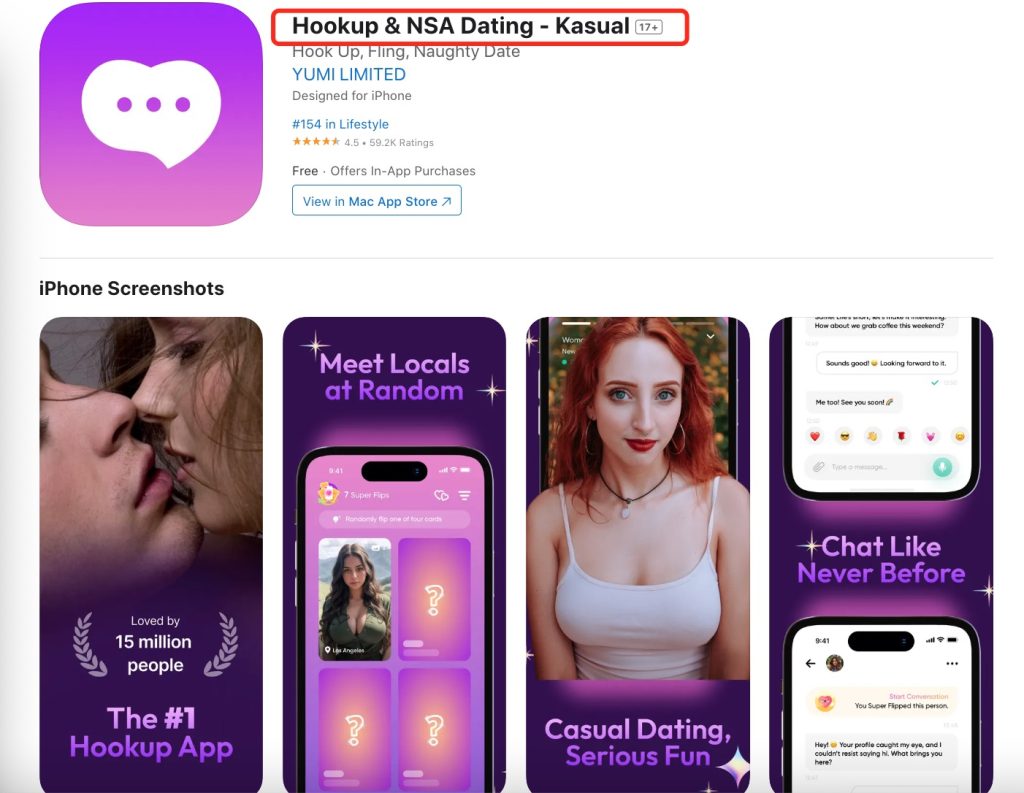Introduction
Dating in university is a complex experience involving emotions, expectations, and results. It’s a time of exploration and self-discovery for many students as they navigate romantic relationships within the academic setting. The university environment, with its freedom and diverse social interactions, shapes how individuals approach and experience dating. This essay explores the impact of university dating on personal development, social skills, and future relationships.
💕Social Aspects
- Time Allocation: Dating can take up some of the time that was originally spent with friends, leading to a decrease in friendship relationships.
- Shared Interests: Dating may lead people to share more common interests with their partners rather than with friends.
- Priority: In the early stages of emotional relationship development, sometimes romantic relationships are prioritized over friendships.
- Emotional Support: A new romantic relationship may partially replace friends in providing emotional support.
- Social Circle: Dating may change social circles, making social circles that were originally the same as friends’ circles different.
- Listening Partner: Sometimes, people may be more willing to share their thoughts and feelings with their partners than with friends.
- Values: Dating may influence people’s values and life views, leading to differences with their original friends.
- Time Distance: After a romantic relationship begins, people may spend more time with their partners, and less time with friends.
- Consultation Object: When advice and suggestions are needed, people may seek advice from their partners more than from friends.
- Communication Method: In the development of a romantic relationship, people may use social media or phones more to communicate with their partners, reducing face-to-face communication with friends.

💕Emotional Aspects
1、Dealing with Rejection and Breakup
- Respect their feelings: When faced with rejection, it’s important to respect how the other person feels. Instead of blaming or complaining, try to understand their perspective.
- Maintain politeness and respect: Whether accepting or rejecting, always be polite and respectful. Avoid being aggressive or insulting.
- Thank them for their honesty: If the other person is honest about their feelings, thank them for their honesty. Honesty is key to healthy relationships.
- Express your feelings: If you feel disappointed or hurt, it’s okay to express your feelings moderately. Just be mindful of your tone and avoid being overly emotional or accusatory.
- Stay confident and optimistic: Rejection doesn’t mean there’s something wrong with you. Stay confident and optimistic, believing that the right person will come at the right time.
- Seek support: If you feel sad or need help, reach out to friends or family for support. They can provide encouragement and help you through tough times.
- Keep moving forward: Rejection is just a small part of life. Don’t let it affect your entire college experience. Keep moving forward and believe in a brighter future.
2、Building Trust and Intimacy
- Engage in social activities: Participate in campus social activities to expand your social circle, boost confidence, and create opportunities for intimacy.
- Maintain a good self-image: Pay attention to your personal image and hygiene to feel good about yourself and leave a positive impression on others.
- Learn to express yourself: Expressing your feelings and needs can enhance intimacy and create a more open relationship.
- Respect others: Respect the thoughts and feelings of others to build intimacy and boost confidence.
- Stay open-minded: Be open to new experiences and viewpoints, which can make you more confident and enrich your life.
- Listen actively: Listening to others is crucial for building intimacy and can make you more friendly and trustworthy.
- Develop healthy habits: Maintaining healthy habits can improve confidence, physical and mental health, and help build closer relationships.
- Learn conflict resolution: Learning to deal with conflict can enhance confidence and deepen intimacy with others.

💕Academic Aspects
- Setting a Schedule: Make a detailed timetable for studying and dating, including specific times for both each day, to make sure you use your time wisely.
- Setting Priorities: Decide which is more important, studying or dating, and do the important academic tasks first, then plan your dating time.
- Using Spare Time: Use breaks between classes, lunch breaks, or waiting times to study, so you make the most of your time.
- Avoiding Procrastination: Start your studying early and avoid leaving things until the last minute.
- Flexibly Arranging Dating Time: Talk with your partner and be flexible with your dating schedule to fit in your study and academic tasks.
- Making a Study Plan: Plan out your week’s study, including time for revision, homework, and exam preparation, to study more effectively.
- Seeking Support: Talk to friends, classmates, or counselors for support and advice about your studies and emotional issues.
- Taking Care of Yourself: Eat well, sleep enough, and exercise regularly to stay physically and mentally healthy.
- Learning to Relax: Learn ways to relax, like deep breathing, meditation, or yoga, to reduce the stress of studying and dating.
- Being Flexible: Learn to adapt to changes, and adjust your study and dating plans as needed to handle different situations and challenges.
💕Personal Growth
- Social Skills: Improving the ability to build relationships and communicate with others.
- Self-awareness: Gaining a deeper understanding of your own needs and preferences through interactions with different types of people.
- Emotional Intelligence: Learning to handle emotional issues and improve emotional management skills.
- Interpersonal Relationships: Understanding how to establish good relationships with partners, friends, and classmates.
- Time Management: Learning to balance dating, academics, and other activities, and improving time management skills.
- Sense of Responsibility: Developing a deeper understanding of maintaining healthy relationships and taking responsibility.
- Conflict Resolution: Learning to handle and resolve conflicts, and cultivating problem-solving skills.
- Confidence: Enhancing confidence through recognition and support from others.
- Adaptability: Adapting to different personalities and lifestyles, and improving adaptability.
- Maturity: Growing in maturity and experience through emotional ups and downs and challenges.

💕Long-Distance Relationships
- Establishing Good Communication Habits: Good communication is key in long-distance relationships. Try to keep in touch regularly through phone calls, video calls, text messages, etc., to share your daily life and feelings.
- Setting Clear Communication Rules: In long-distance relationships, it helps to agree on some communication rules, like the best times for daily calls and how often to video call each week. This can build trust and dependence.
- Creating Common Goals and Plans: Set some long-term goals and plans together, such as meeting after graduation or planning a trip together. This can help maintain hope and confidence in the future.
- Trust and Understanding: Building a strong foundation of trust is crucial in long-distance relationships. Try to understand each other’s situations and feelings, and avoid suspicion and misunderstandings.
- Maintaining Personal Life and Interests: Apart from the relationship, it’s important to continue developing your personal life and interests to stay independent and happy.
- Scheduling Meeting Times: Try to schedule regular times to meet up to increase intimacy and connection.
- Seeking Support: When facing difficulties, don’t hesitate to seek support and advice from friends, family, or professionals to tackle challenges together.
💕Cultural and Diversity
- Respect each other’s cultural background and values, and avoid prejudice or discrimination.
- Listen to and learn from each other’s cultural traditions and customs to enhance understanding and respect.
- Show an open and inclusive attitude in dating, willing to accept and respect different cultural backgrounds.
- Ensure compliance with each other’s cultural etiquette and behavioral norms in dating to avoid misunderstanding or offense.
- Actively understand each other’s cultural background, and enhance understanding of each other’s culture by asking questions or conducting independent research.
- Demonstrate flexibility and inclusiveness in dating, willing to accept and adapt to differences between cultures.
- Avoid derogating or denying each other’s cultural views, and respect and accept each other’s cultural background.
- Show sensitivity and attention to cultural diversity in relationships, discuss how to integrate each other’s cultural elements in relationships.
- Actively participate in multicultural activities and social circles, expand one’s cultural horizons and awareness.
- Communicate openly with each other, discuss cultural differences, and find ways to understand and integrate with each other’s cultures.

💕Gender Dynamics
Different Communication Styles between Genders
- Expressing Emotions: Generally, women tend to directly express emotions and needs, while men may prefer to express them through actions or hints.
- Problem Solving: Men may tend to quickly propose solutions to problems, while women may prefer to listen and share feelings.
- Language Style: Men may tend to use direct and concise language, while women may prefer to use more expressive and emotionally colored language.
- Eye Contact: It’s commonly believed that women tend to maintain good eye contact during communication, while men may be more easily distracted.
- Body Language: Men may tend to use body language to emphasize points or express emotions, while women may prefer to use subtle body language to convey information.
- Listening Style: Women may tend to actively listen to others and provide support and sympathy, while men may tend to offer advice or solve problems more directly.
- Expression of Emotions: Women may tend to express emotions and attach more importance to emotional resonance, while men may tend to maintain rationality and objectivity.
- Communication Purpose: Men may focus more on solving problems or achieving goals in communication, while women may focus more on building relationships and maintaining intimacy.
- Response Style: Women may tend to give affirming and encouraging responses, while men may tend to give advice or critical responses.
- Language Use: Women may prefer to use more emotional vocabulary and detailed descriptions, while men may tend to use more concise and direct language.
💕Health and Safety
1、Safe Dating Practices
- Choose Public Places: Meet for the first time in public places like cafes, restaurants, or libraries to avoid private or secluded areas.
- Inform Friends or Family: Tell friends or family about your dating plans, including time, place, and the other person’s contact information, for emergency help.
- Self-Protection Awareness: Stay alert, pay attention to your surroundings, and be ready to leave if you feel unsafe or uncomfortable.
- Avoid Excessive Drinking: Limit alcohol intake to avoid impaired judgment and increased risk of danger.
- Maintain Control: Stay in control during the date and don’t let the other person force you to do things you’re not comfortable with.
- Protect Personal Information: Avoid sharing too much personal information, like your home address or contact details, to prevent harassment.
- Learn Self-defense Skills: Learn basic self-defense or escape techniques for added safety.
- Respect the Other Person’s Wishes: Respect both your and the other person’s boundaries to avoid disputes.
Kasual
This is a casual dating app that supports anonymous login and features a fun flipping card game. Join us now!

2、Recognizing Signs of Unhealthy Relationships
- Control and Jealousy: The other person tries to control your behavior, social circle, or time and shows excessive jealousy.
- Negative Impact: They often make you feel depressed, anxious, or inferior instead of supporting you positively.
- Lack of Respect: They don’t respect your opinions, feelings, or personal space, often criticizing or belittling you.
- Communication Difficulties: Difficulty communicating openly about thoughts and feelings.
- Violent Tendencies: They show violent tendencies, including verbal abuse, emotional manipulation, or physical harm.
- Unequal Relationship: There’s a clear imbalance of power, with one person being passive or controlled.
- Irresponsibility and Immaturity: They lack responsibility and maturity, unable to handle relationship issues and challenges.
- Privacy Violation: They invade your privacy, such as by checking your phone, social media, or personal information without permission.
- Ignoring Personal Needs: They disregard your needs and feelings, focusing only on their own.
- Emotional Fluctuations: Frequent emotional ups and downs, with arguments, indifference, and reconciliation.
- Isolation: They try to isolate you from friends and family, making you more dependent on them.
- Hindering Personal Goals: Being with them hinders your personal goals and development, such as academic or career aspirations.
- Changing Attitudes: Their attitude changes frequently, making you feel unstable and confused.
- Economic Control: They try to control your financial situation, making you economically dependent on them.
- Pressure and Threats: They pressure or threaten you, making you feel insecure and threatened.
- Lack of Support: They lack support and understanding during difficult times, making you feel lonely and helpless.
- Overdependence: They overly depend on you, making you feel burdened and unable to develop freely.
- Emotional Manipulation: They try to control your behavior and decisions by manipulating your emotions.
- Self-Sacrifice: Overly sacrificing your needs and desires in the relationship to meet their needs.

💕Impact on Future Relationships
1、Expectations for Relationships After Graduation
- Continued Relationship Development: Some people hope that their college dating partners can become long-term partners, continuing to build stable relationships after graduation.
- Friendship Turns into Love: Some people may have been friends in college but hope that the relationship can further develop into a romantic one after graduation.
- Maintaining Contact: Even if they cannot become partners, some people hope to maintain contact and become important friends in each other’s lives.
- Pursuing Personal Development: Some people may choose to pursue personal development separately after graduation, but still hope to maintain contact and a friendly relationship.
- Ending the Relationship: Some people choose to end their college dating relationships after graduation, seeking new beginnings and opportunities.
- Planning the Future Together: Some people may plan their future together after college, including aspects such as work, living location, and family.
- Dependence on Realistic Conditions: Some people’s relationship expectations may be limited by realistic conditions, such as employment location and family background.
2、The Influence of College Dating on Marriage and Long-term Commitment
- Social Skills: College dating can help people learn to get along and communicate better with others, which is crucial for future marriage and long-term commitment.
- Emotional Maturity: Through experiencing different dating relationships, people can better understand their emotional needs and expectations, which helps them deal with issues more maturely in marriage.
- Consistency in Values: In college dating, people have the opportunity to discover whether their values are consistent with those of their potential partners, which helps them choose a suitable long-term partner.
- Decision-making Skills: By facing various choices and decisions in dating, people can cultivate their decision-making skills, which is helpful for their future married life.
- Self-awareness: College dating can help people better understand their strengths and weaknesses, as well as their role and responsibilities in relationships.
- Communication Skills: By interacting with different types of people, people can improve their communication skills, which is crucial for good communication in marriage.
- Concept of Marriage: College dating can help people establish the correct concept of marriage, realizing that marriage is a long-term commitment that requires effort and time.
- Family Concept: Through participating in college dating, people can have a clearer understanding of the importance of family in life, thus cherishing the family they may build in the future.
- Sense of Responsibility: Through dating relationships, people can cultivate a sense of responsibility, learning to take responsibility for their own and others’ actions, which is very important for future marriage and family life.
- Opportunities for Growth: College dating is an opportunity for growth. Through this process, people can become more mature and confident, better preparing them for future marriage and long-term commitment.

Conclusion
University dating is complex, providing challenges and chances for growth and self-discovery. It’s a time for navigating relationships, learning about oneself and others, and developing social and emotional skills. Whether leading to long-term commitment or serving as a learning opportunity, university dating is integral to the college experience, shaping students’ views on relationships and future interactions.




